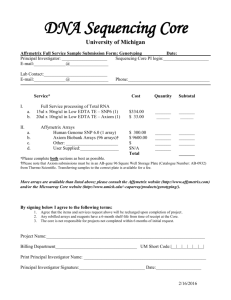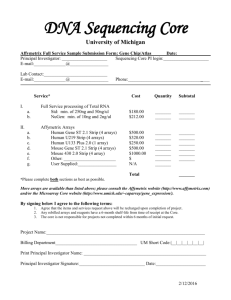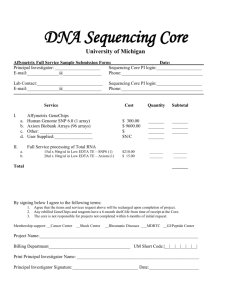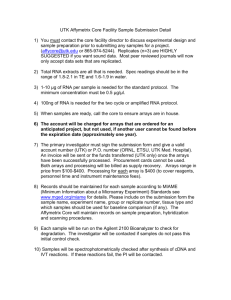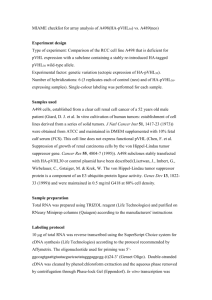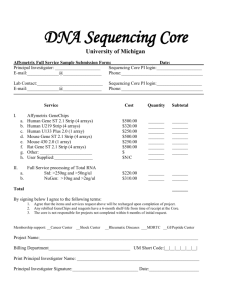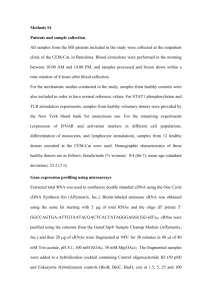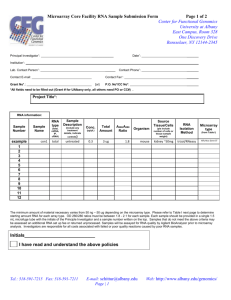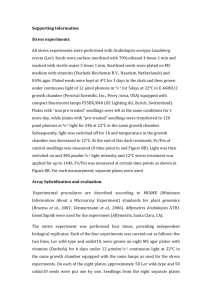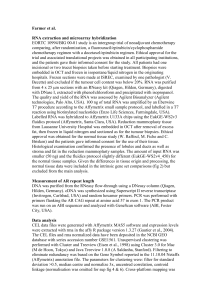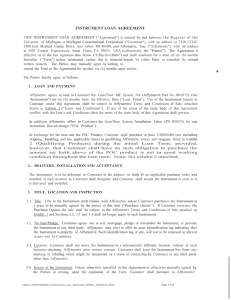MIAME Information
advertisement
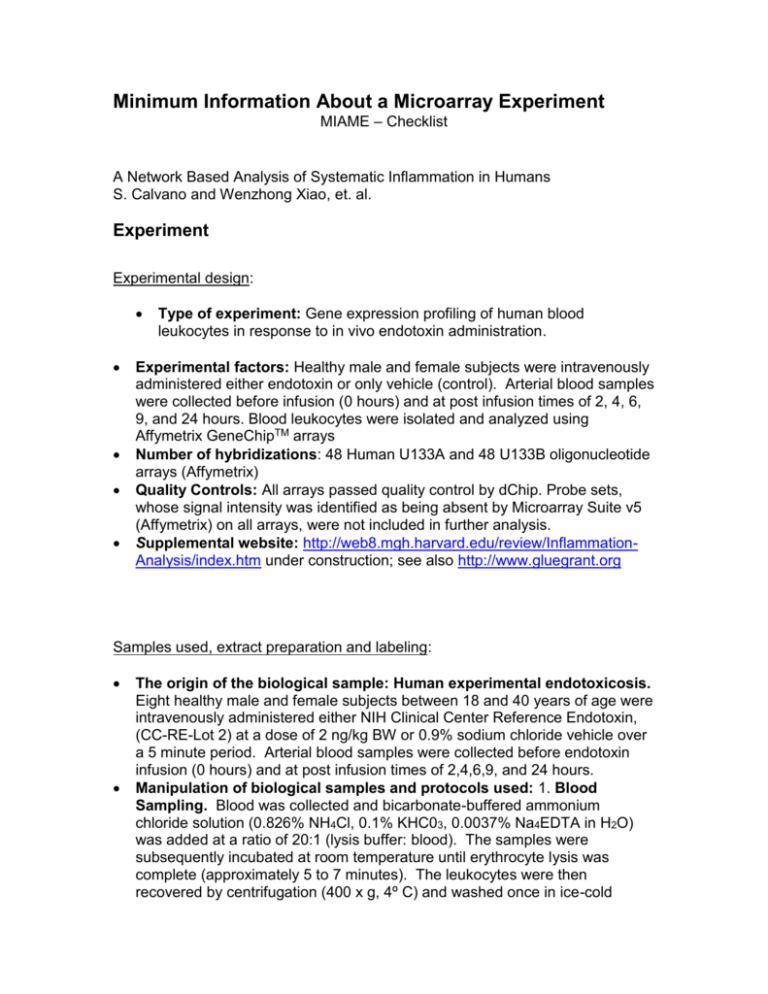
Minimum Information About a Microarray Experiment MIAME – Checklist A Network Based Analysis of Systematic Inflammation in Humans S. Calvano and Wenzhong Xiao, et. al. Experiment Experimental design: Type of experiment: Gene expression profiling of human blood leukocytes in response to in vivo endotoxin administration. Experimental factors: Healthy male and female subjects were intravenously administered either endotoxin or only vehicle (control). Arterial blood samples were collected before infusion (0 hours) and at post infusion times of 2, 4, 6, 9, and 24 hours. Blood leukocytes were isolated and analyzed using Affymetrix GeneChipTM arrays Number of hybridizations: 48 Human U133A and 48 U133B oligonucleotide arrays (Affymetrix) Quality Controls: All arrays passed quality control by dChip. Probe sets, whose signal intensity was identified as being absent by Microarray Suite v5 (Affymetrix) on all arrays, were not included in further analysis. Supplemental website: http://web8.mgh.harvard.edu/review/InflammationAnalysis/index.htm under construction; see also http://www.gluegrant.org Samples used, extract preparation and labeling: The origin of the biological sample: Human experimental endotoxicosis. Eight healthy male and female subjects between 18 and 40 years of age were intravenously administered either NIH Clinical Center Reference Endotoxin, (CC-RE-Lot 2) at a dose of 2 ng/kg BW or 0.9% sodium chloride vehicle over a 5 minute period. Arterial blood samples were collected before endotoxin infusion (0 hours) and at post infusion times of 2,4,6,9, and 24 hours. Manipulation of biological samples and protocols used: 1. Blood Sampling. Blood was collected and bicarbonate-buffered ammonium chloride solution (0.826% NH4Cl, 0.1% KHC03, 0.0037% Na4EDTA in H2O) was added at a ratio of 20:1 (lysis buffer: blood). The samples were subsequently incubated at room temperature until erythrocyte lysis was complete (approximately 5 to 7 minutes). The leukocytes were then recovered by centrifugation (400 x g, 4º C) and washed once in ice-cold phosphate buffered saline. The leukocyte pellets were then resuspended in 8 ml of RLT buffer (Qiagen Inc., Valencia, CA) and the samples sheared ten times with an 18 gauge needle attached to a 10 ml syringe. Samples were then immediately frozen at -70º C until the RNA was extracted. 2. Leukocyte RNA Isolation. Total cellular RNA was isolated from the leukocyte pellets using a commercial kit (RNeasy, Qiagen, Inc); purity was confirmed by spectrophotometry (A260/A280 ratio), and capillary electrophoresis (Agilent 2100 Bioanalyzer, Agilent Inc., Palo Alto, CA) . Labelling protocol: Complementary RNA (cRNA) synthesis. cRNA synthesis was performed with 4 µg of total cellular RNA, and labelled based on the protocol outlined by Affymetrix Inc. (Santa Clara, CA), with few modifications. Hybridization procedures and parameters: The protocol and conditions used during hybridization, blocking and washing are provided in the Expression Analysis Technical Manual by Affymetrix Inc. (Santa Clara, CA), and available at http://www.affymetrix.com/Auth/support/downloads/manuals/expression_print_m anual.zip . Measurement data and specifications: GeneChipTM arrays were scanned using the HP GeneArray Scanner (Affymetrix). The .cel files were generated using the Microarray Suite v5 software from Affymetrix (http://www.affymetrix.com/Auth/support/downloads/manuals/mas_manual .zip). 44,924 probe sets on the U133A and U133B arrays were analyzed. Normalization was preformed using dChip (http://www.dchip.org/), and expression level was modeled using the perfect match only model. Probe sets, whose signal intensity was identified as being absent by Microarray Suite v5 (Affymetrix) on all arrays, were not included in further analysis. Array Design General array design: in situ synthesized arrays by Affymetrix, and commercially available from Affymetrix. The arrays used in this study can be purchased from Affymetrix: http://www.affymetrix.com/products/arrays/specific/hgu133.affx, P/N# 90044
